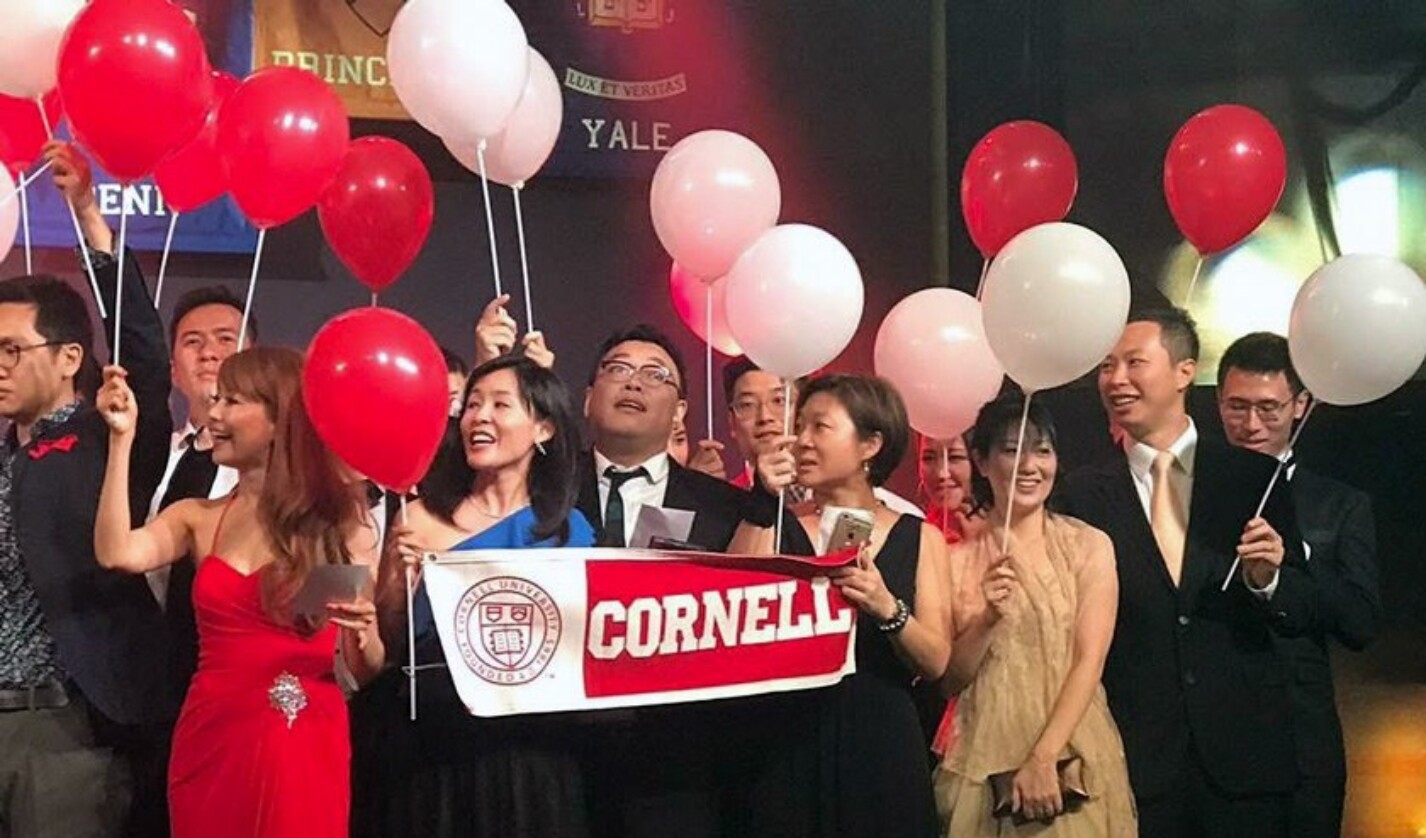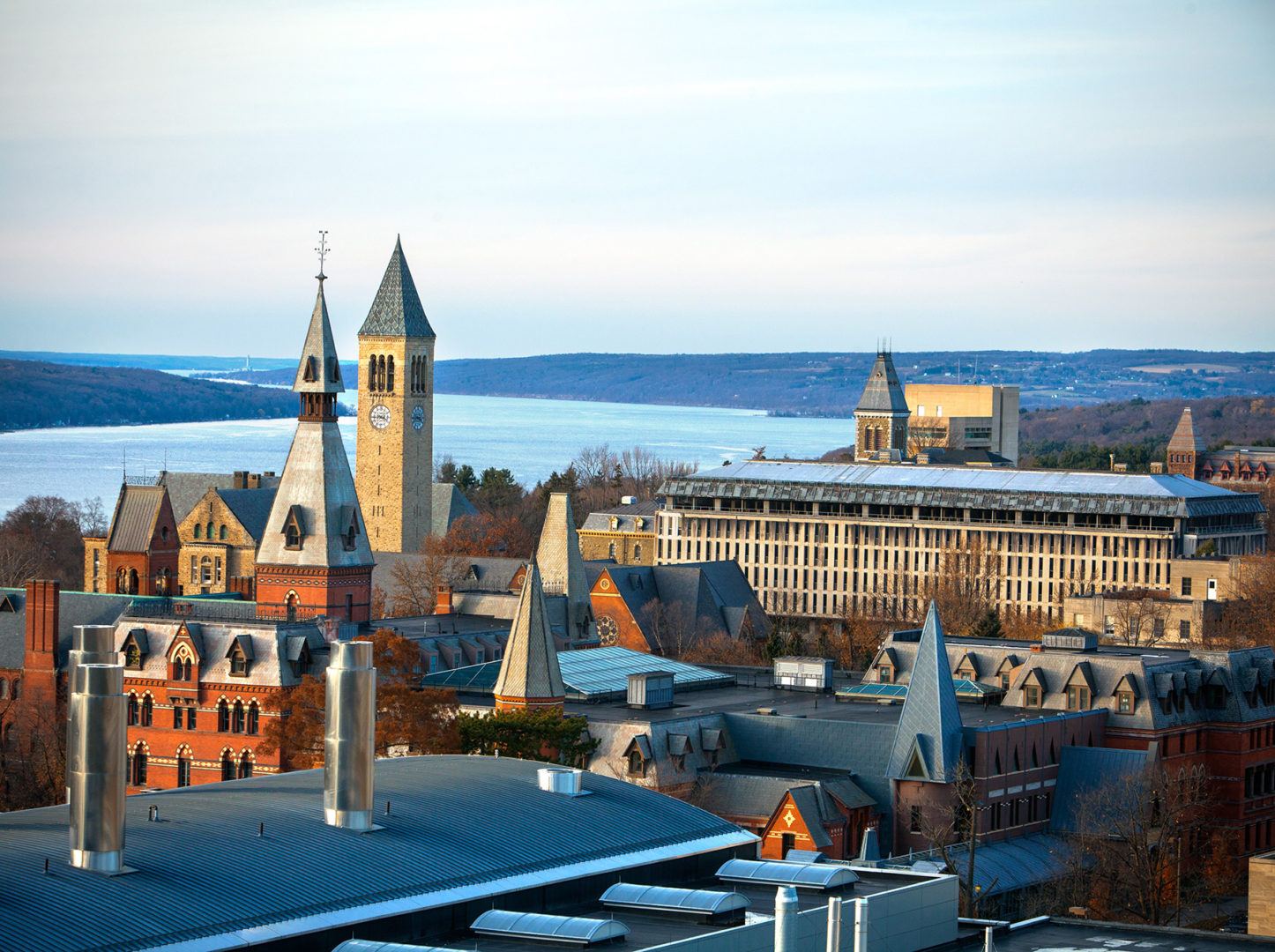Professor Steven Strogatz teaches students in Math 1300: Mathematical Explorations, an introductory course taken by Cornell undergrads in non-math related majors to fulfill their quantitative reasoning requirement. Many of these students are anxious about taking a math class, based on their prior experiences with math in high school.
“Their college will tell them you have to take some math to graduate. And they don’t want to,” explains Strogatz, who is the Susan and Barton Winokur Distinguished Professor for the Public Understanding of Science and Mathematics and the Stephen H. Weiss Presidential Fellow.
To challenge their preconceptions and make the subject more engaging—even fun—Strogatz borrowed an activity developed by teachers at Westfield State University in western Massachusetts. The students’ task is to cut out a triangle drawn in the center of a piece of paper, using only a single straight cut. Students don’t take long to ask whether it’s ok to fold the paper (the answer is yes). As a warm-up, Strogatz has the students cut out an equilateral triangle and a square, a challenge that all students successfully tackle. But when they try a triangle with three unequal sides, they have a much harder problem to work out.
The goal of the task is to get them to collaborate, come up with creative solutions, and not give up when they’re stumped.
“We’re trying to make it much more like a real mathematical experience where you work on something hard together and try to figure it out,” Strogatz says. “Trial and error are important.”
He plans to share the triangle and other engaging math content in a New York Times series he’ll be authoring in fall 2024. Strogatz previously wrote for the paper in 2010, helping to share the joy of math with learners of all ages. The possibility of changing people’s minds about math excites him.
With younger audience members tuned into YouTube and TikTok—rather than the Times—Strogatz also hopes to connect with some of the big names on these platforms (with millions of followers), to share what he calls math “stories.”
One example is the story of Katherine Johnson, a NASA scientist featured in the movie Hidden Figures. He wants to explain the math that Johnson worked on that helped to send astronauts to the moon.
“That’s a great story that’s not in the movie,” he observes.
Strogatz relishes the challenge of making math more palatable to everyone. Much like Music 101 or Art 101, he envisions Math 101—a broadly engaging approach to share the value of mathematical thinking with every person.
Strogatz notes that students in the US have been performing “dismally” in math in recent years, especially among underrepresented groups, including women and minorities. At the same time, the world has become increasingly technical. The result is a widening income gap between those with and without math proficiency in the workforce.
The Math 101 initiative will attempt to change these dynamics (decrease disparities and democratize the subject) and better prepare young people to solve math problems. Professor Strogatz will be helping to lead the charge.
He recently partnered with the State of Utah Department of Education to improve K-12 math education. The Utah connection came after the state’s chair of secondary math education heard him on a recent Freakonomics podcast, “Steven Strogatz Thinks You Don’t Know What Math Is.” Strogatz’s view of math as something fun and empowering resonated, and he’s currently working with Utah educators to make the subject come alive for students.
When asked why mathematical thinking matters to people who don’t do math as part of their jobs, Strogatz uses an analogy.
“When they’re working on a difficult problem, people think of situations in the past that remind them of the situation they’re in now. Most people turn to history or their life experience for insights. In math, we turn to our equations and simulations, which involve abstract symbols that obey rules. These rules are what we call the laws of nature in the real world.”
A great example of such mathematical rules is Strogatz’s groundbreaking work on small-world networks, in which he and his graduate student Duncan Watts, PhD ’97 (now a professor at the University of Pennsylvania) explained the math underlying six degrees of separation between any two people. Their 1998 Nature paper on small-world networks is among the 100 most highly cited scientific papers of all time, and their work underpins everything from social networks to understanding the spread of COVID-19 through the population.
Strogatz says that he loves working at Cornell, where he’s been for the past 30 years. He explains that the small-town vibe in Ithaca fosters community with his peers across disciplines. When faculty walk their dogs together, there’s an open exchange of ideas and opportunities to learn from one another (a bonafide small-world network).
“It makes it possible to be vulnerable,” he says. “You can admit that you don’t know everything and be open to doing interdisciplinary work outside of your area of expertise.”
For example, Strogatz has collaborated with Michael Macy, a Cornell sociologist who studies how social media helps connect people who engage in collective action, like the 2011 Arab Spring.
Strogatz says that his new endowed professorship allows him to devote more time to Cornell’s mission of public engagement. In Professor’s Strogatz’s case, this mission is to change the common perception that math is scary and share the joy of x, y, and z.





